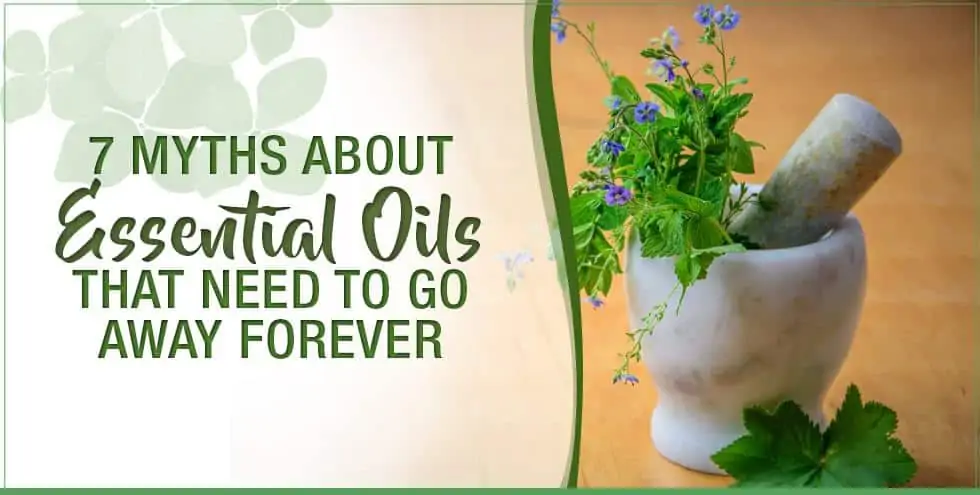[vision_pullquote style=”3″ align=”center”] Click Here To Quickly View This Page In One Image!
Essential Oils Myths Infographic[/vision_pullquote]
Myth #1: Essential Oils Don’t Work
One of the most common myths about essential oils is that they simply don’t work. Of course, there will always be skeptical people who choose to believe that all forms of natural health are ineffective. However, the truth is that there are numerous clinical studies that completely back up the claims that essential oils can treat many different health ailments.
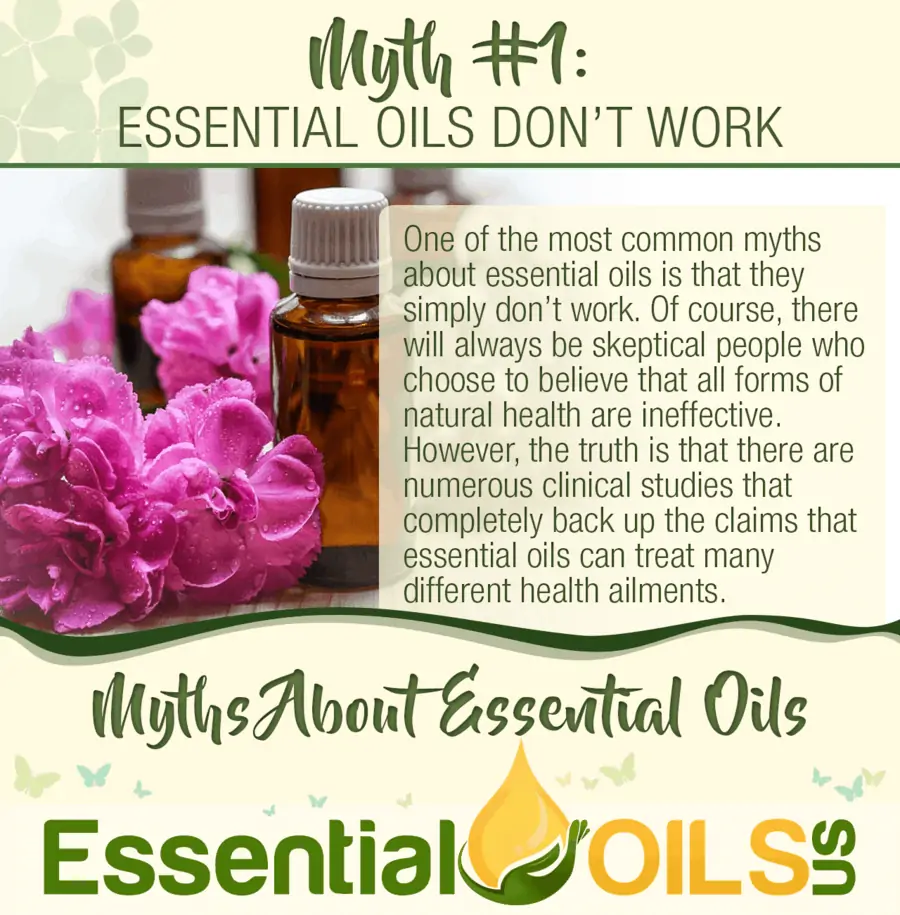
For instance, scientific studies have proven that lavender essential oil can calm down the nervous system by measuring peoples’ rate of breath and heart rate before and after inhaling lavender oil. Other scientific studies have confirmed that most essential oils possess powerful antibacterial properties by dissecting and studying the oils’ various chemical compounds.
Of course, as is the case with all forms of medicine, an essential oil may not be effective for you. However, science has proven that these oils are fully capable of treating a wide range of health problems.
[amazon box=”B008B9Y0EY”]
Myth #2: Essential Oils Should Never be Ingested
The argument about whether or not essential oils are safe to ingest has been going on since essential oils were first extracted. Because some oils, such as tea tree oil, are toxic when ingested in large quantities, people wrongfully assume that all essential oils are dangerous to consume in any amount. However, the truth is that most essential oils are safe to consume when heavily diluted. For instance, lemon essential oil is often used as a harmless flavor enhancer because of its lemony aroma.
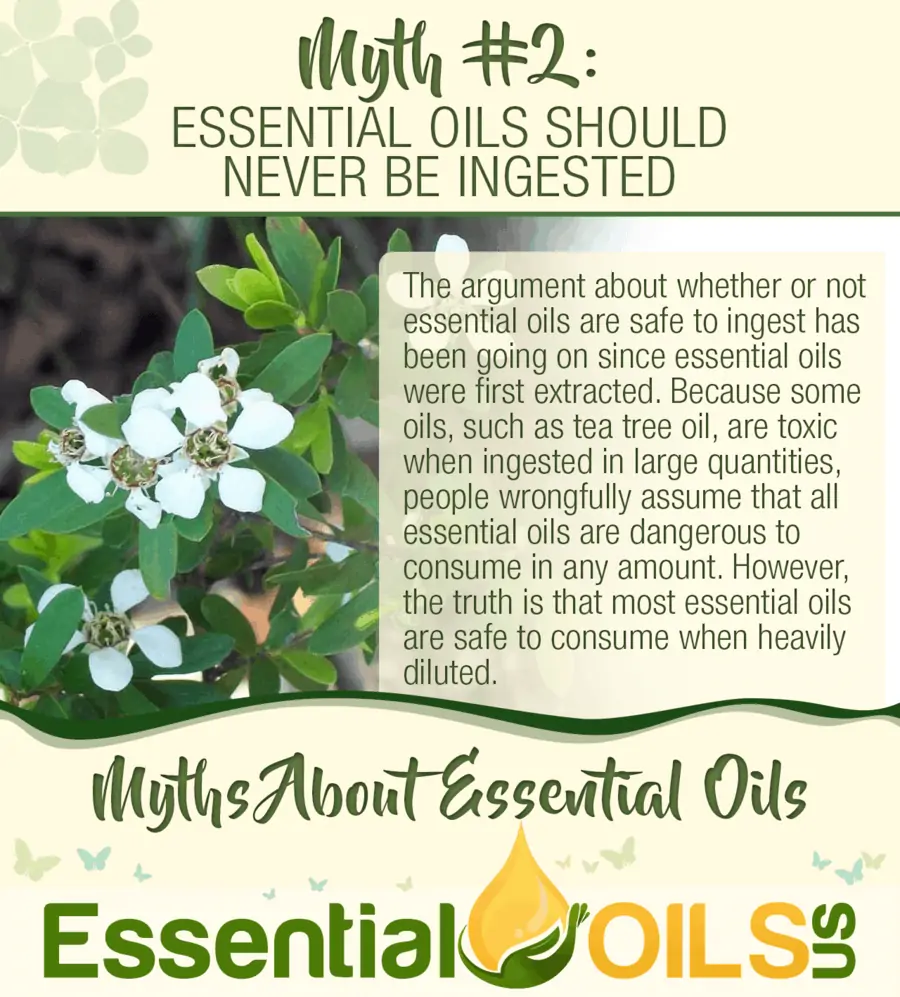
If you’re worried about the toxicity of an essential oil, you can always call the manufacturer and ask them yourself. However, in most cases, a couple of drops diluted in a large glass of liquid will do no harm whatsoever.
[amazon box=”B06XRLR9RQ”]
Myth #3: Essential Oils Can Last Forever
Many people wrongfully believe that high-quality essential oils can last forever. However, this isn’t the case. Oxidization is a natural and inevitable process that takes place as soon as the oil is exposed to air and light.
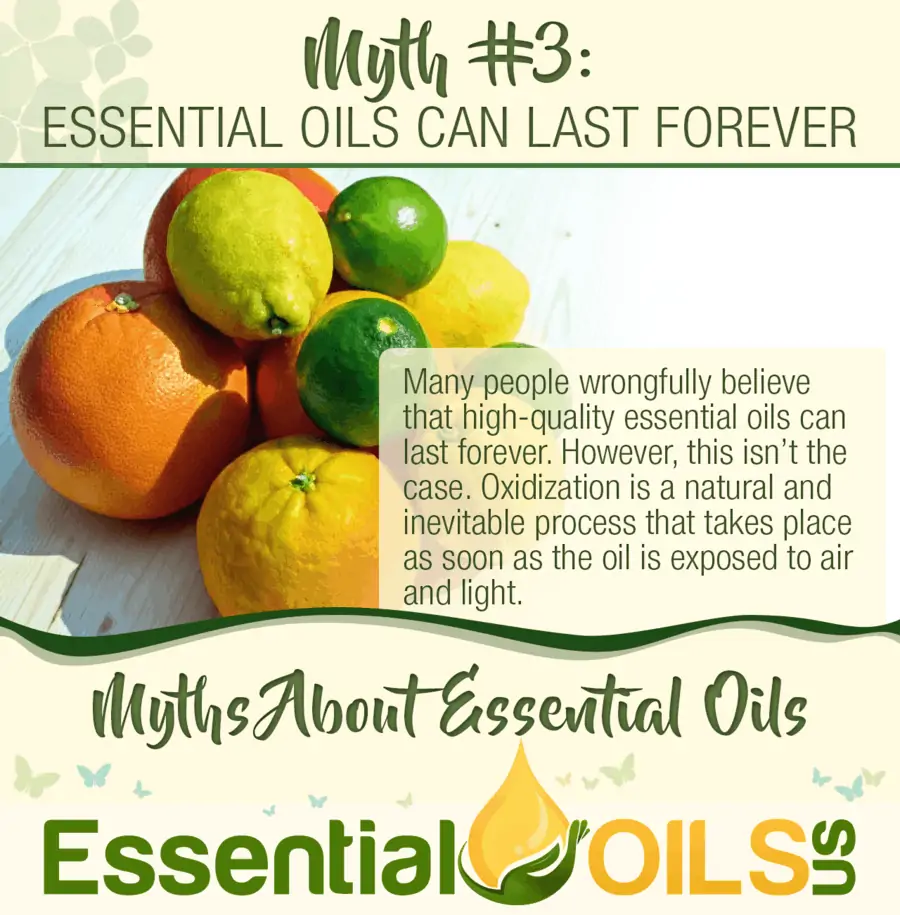
In fact, citrus oils have a fairly short shelf life because of limonene, a chemical compound that oxidizes at a fast rate. Therefore, it’s always best to test an oil before using it by smelling it. If its aroma is still potent and doesn’t smell stale, it’s probably fine. If you’re really concerned, you can always contact the manufacturer and ask them.
[amazon box=”B074XTQCQS”]
Myth #4: All Essential Oils are Created Equally
When it comes to any type of product, there are brands that make high-quality items and brands that make poor-quality items. The essential oil industry is no different. It goes without saying that you want to stick to high-quality essential oils that are as pure as possible. When selecting a brand from which to purchase your essential oils, try to find out how the ingredients are sourced. Does the brand use pesticides? Do they rely on artificial dyes or use filler ingredients? Essential oils should not contain any of these additives. Once you find a brand that you’re happy with, stick with it.
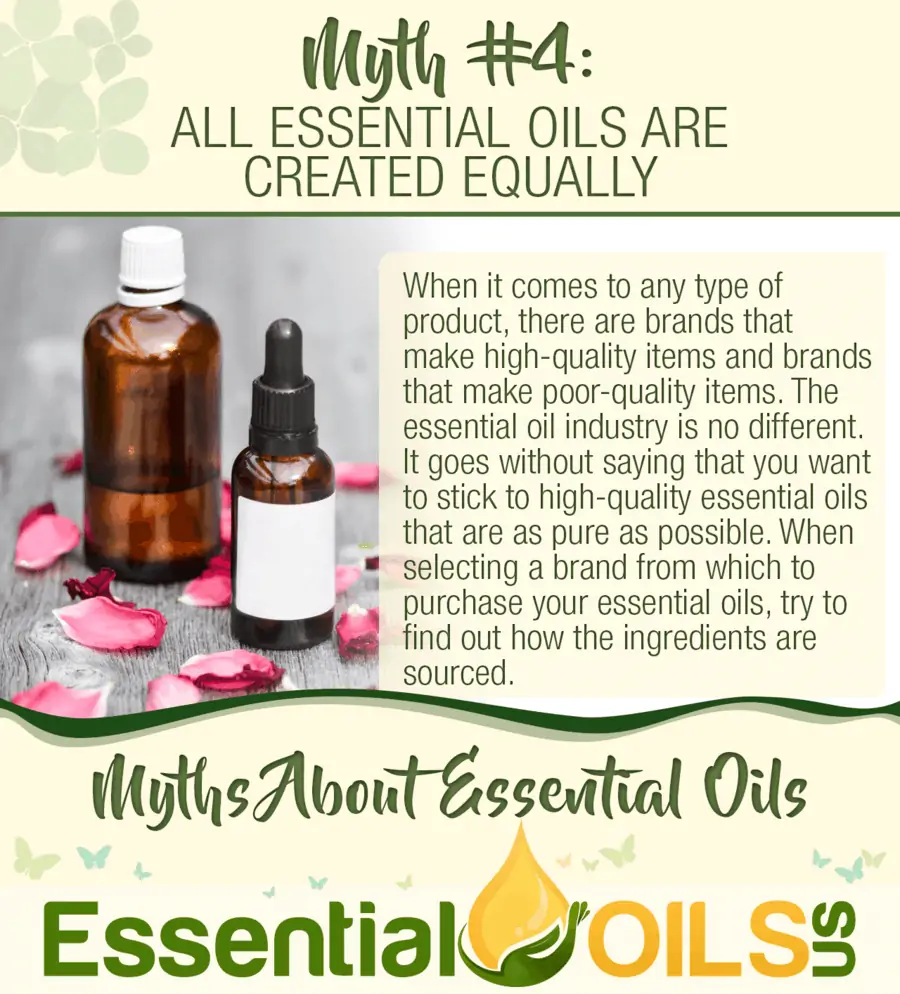
[amazon box=”B007P70U88″]
Myth #5: The More Expensive the Essential Oil, the More Potent its Properties
The price of essential oils is not regulated. Therefore, you will find poor-quality products that are sold for high prices and high-quality products that are incredibly inexpensive. When you’re selecting a brand from which to purchase essential oils, the price tag doesn’t mean much. What matters is the quality of the oils. Granted, certain oils are more expensive than others. However, the bottom line is that you don’t need to break the bank to get started on building your essential oil collection. There are plenty of brands that sell wonderful, highly effective essential oils that are very affordable.
[amazon box=”B00SA5UWW8″]
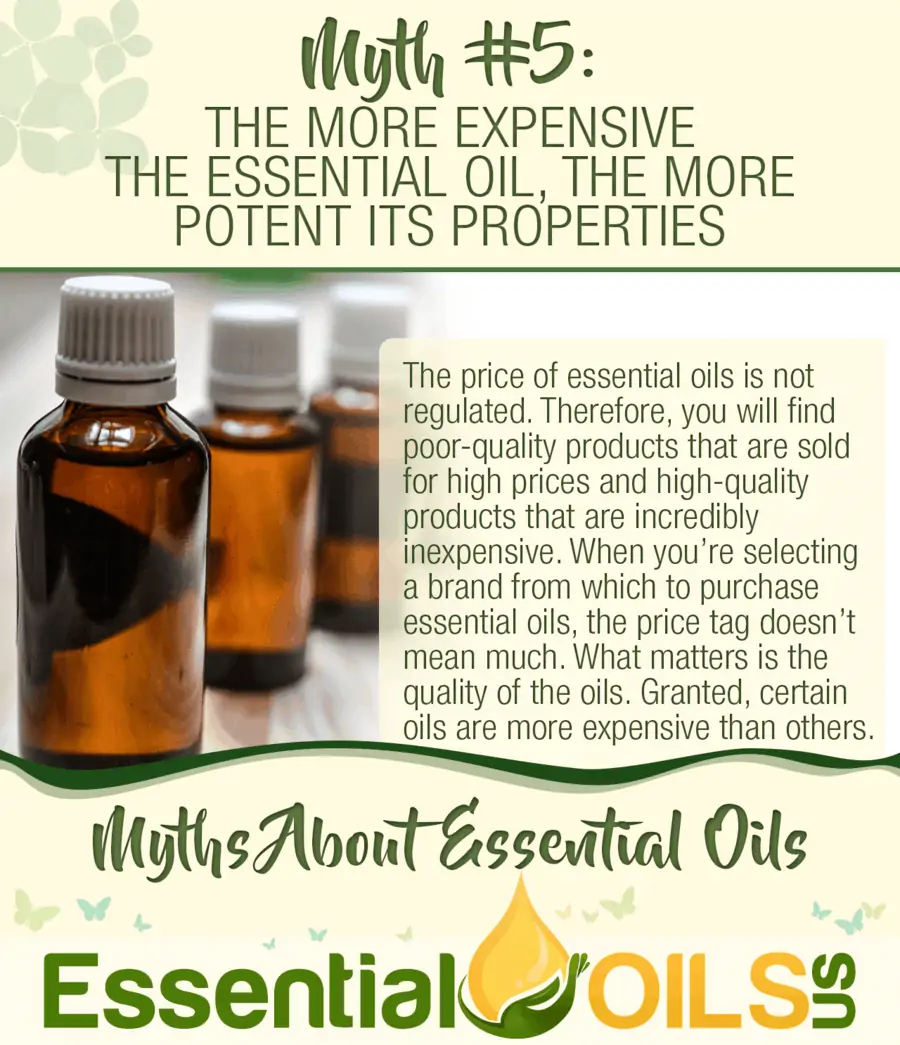
Myth #6: If an Essential Oil Causes a Rash, it’s a Sign that Your Body is Detoxing
The idea that a rash that appears after applying an essential oil to your skin is the result of detoxification is nothing short of dangerous. While essential oils can detoxify the body, a rash is an indication of skin irritation, often caused by an allergy to the plant from which the essential oil is made.
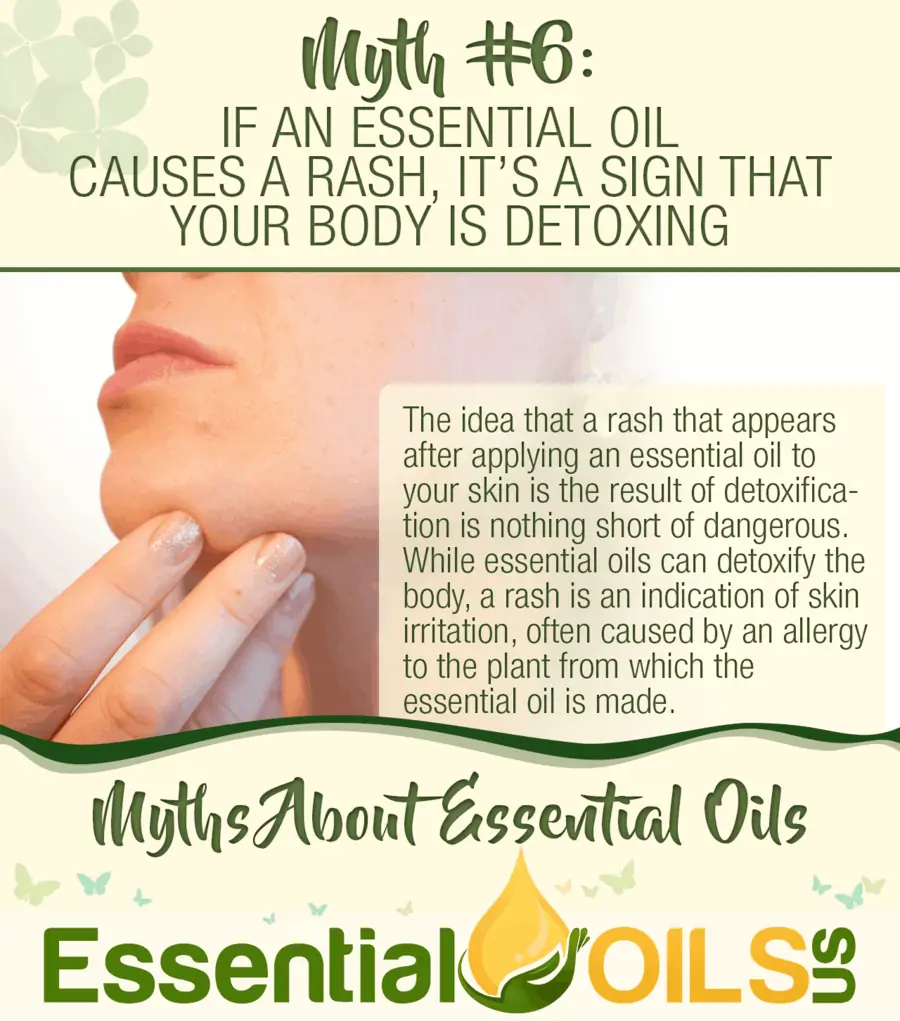
To prevent a rash from developing, always dilute your essential oils in a carrier oil to see how they interact with your skin. If you know that you have an allergy to a certain plant, it goes without saying that you should avoid that plant’s essential oil altogether. Additionally, if you want to play it safe, apply a single diluted drop of an essential oil to your skin and wait for one day to see if skin irritation develops. If not, you’re good to go.
[amazon box=”B00WJ91JHI”]
Myth #7: You Should Only Use Essential Oils that are Therapeutic Grade
To the surprise of many aromatherapy enthusiasts, the phrase “therapeutic grade” doesn’t really mean much. This phrase is often used by brands as a marketing term. The reality is that by nature, all essential oils are therapeutic. Because essential oils are fairly unregulated and are not graded for quality like our food, this phrase comes from the manufacturer of the product.
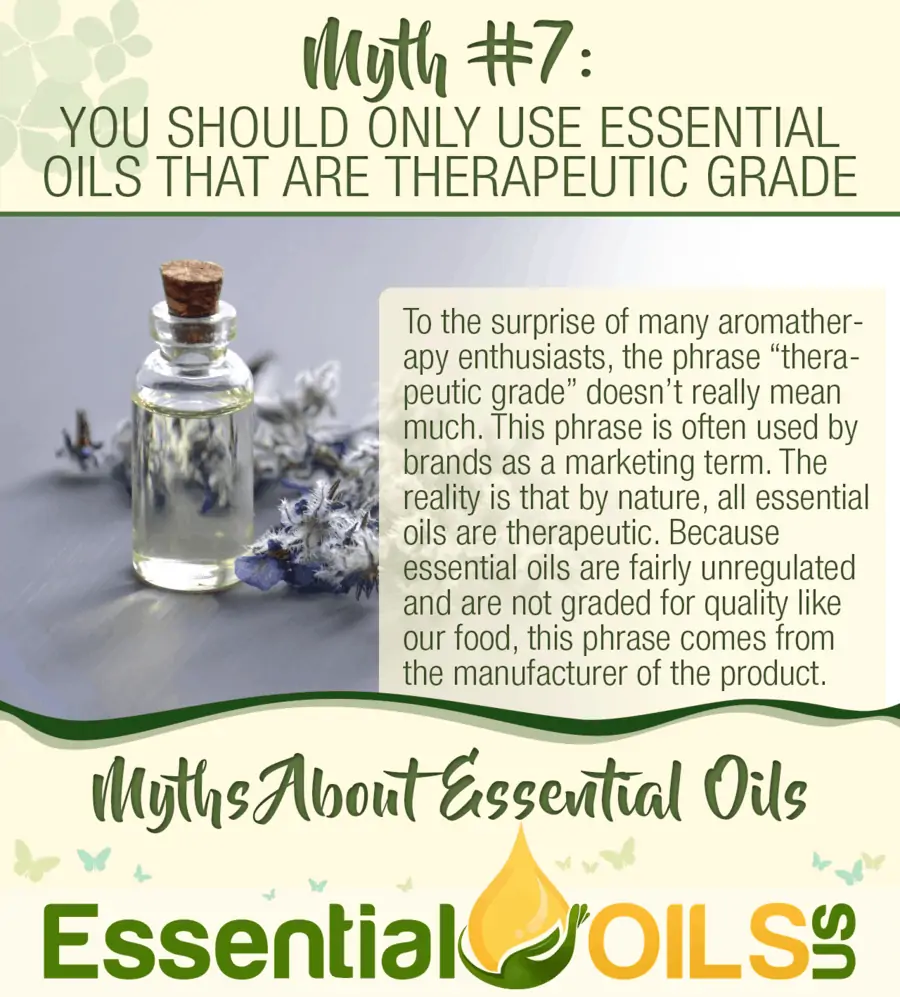
In other words, any essential oil company can put “therapeutic grade” on their bottle in order to give themselves a competitive edge. If you’re curious about the quality of an essential oil, simply get in touch with the company and ask them about important things like purity and the method of extraction.
[amazon box=”B071RXT6N8″]
Essential Oils Myths Infographic

Summary
If you want to start using essential oils in your everyday life, knowing the facts from fiction is crucial. By debunking these seven myths, you’ll hopefully be able to make the best decisions when it comes to purchasing and using your essential oils.

